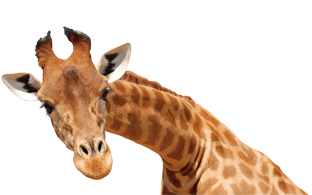




BOTSWANA ON THE MAP
General Information About Botswana
Easily one of best safari destinations in Africa, Botswana is a wild and dramatic land characterised not only by its bountiful wildlife, but also by its extraordinary scenery: from shimmering salt pans and diamond-rich deserts to raging rivers and fertile plains, the landscapes here come in many guises.
Nearly half of the country is given over to national parks, reserves and private concessions, which makes for an excellent safari experience. Botswana’s policy of favouring low-impact luxury tourism ensures that even the most famous game-viewing areas rarely feel crowded, while its population of just two million adds to the sense of wilderness.
The north of Botswana in particular offers superb wildlife-watching opportunities. It is home to the wondrous Okavango Delta – the largest inland delta in the world – where shimmering lagoons and fertile waterways are crammed with more than 400 species of bird. Away from the water zebras and giraffes amble across grass flats and flood plains, keeping an eye out for the numerous big predators that also reside here.
Northeast of Okavango is another jewel in Botswana’s crown: Chobe National Park, which has one of the largest concentrations of game anywhere in Africa. The reserve is particularly well known for its vast elephant herds, some 400-strong, which share this wild land with the likes of lions, cheetahs, hippos and many more.
It’s not only in conservation that Botswana is an African success story. Since gaining independence in 1966, it has achieved steady economic growth through good use of its agricultural potential and enviable diamond reserves.
Botswana is remains a peaceful and stable nation of remarkable natural beauty and its developed infrastructure makes it much more accessible than some of its neighbours.
Key Facts
Visas
Do not require visa almost all EU countries, United States and all citizens of Commonwealth countries except those from Bangladesh, Cameroon, Ghana, India, Nigeria, Pakistan, and Sri Lanka. (more info on http://www.gov.bw)
Money
Botswana pula. ATMs can be found in major towns. Credit cards are widely accepted and most hotels will take travellers cheques. Tipping can be a minefield – ask for local advice on what’s appropriate.
History of Botswana
The first people to settle in Botswana were the San Bushmen, nomadic hunter-gatherers whose territories are also thought to have spanned present-day Namibia, Angola, South Africa, Zambia and Zimbabwe. Their influence is still evident in southern Africa, where these indigenous inhabitants eke out traditional lives as hunter-gatherer. Examples of their early rock art are also still visible across the region.
From the 17th century the San Bushmen started to come under pressure from migrating Bantu tribes, who had migrated from sub-Saharan Africa. A further series of migrations followed and by the 18th century these migrants were firmly established in the southern part of Botswana, and had established a powerful military state controlling hunting, cattle-breeding and copper mining.
The 19th century brought another period of upheaval, as inhabitants from the north of the continent, dislocated by slavery and the collapse of their local economies, moved to new territories.
British colonialists and Boer settlers then came along and vied for control of Botswana; the local rulers allied themselves with the British against the Boers, and Botswana was eventually brought under British protectorate control in 1890, remaining so until independence in 1966.
Popular Seretse Khama became the country’s first president – a position he held until his death in 1980 – and subsequent elections have remained peaceful and democratic.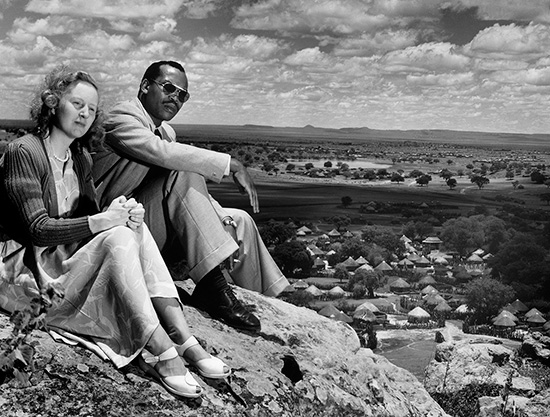
In the late 1960s, diamonds were discovered in Botswana and became the primary driving factor for the country’s economic growth and independence. These riches have, unlike in other parts of Africa, helped the country become a veritable African success story.
During the 1980s and 1990s, Botswana was an important player in South Africa’s apartheid struggle, providing refuge for a number of guerrilla fighters and political exiles.
Botswana continues to be a shining light of peaceful, non-racial, multi-party democracy on the African continent.
Botswana Culture
Religion in Botswana
Christianity, Roman Catholic and indigenous beliefs. There are numerous small Zionist and Apostolic churches in rural villages, as well as United Reformed (Congregational and Methodist), Dutch Reformed, Lutheran, Methodist and Anglican churches, and predominantly expatriate Muslim, Quaker, Hindu and Bahai congregations in major towns.
Social Conventions in Botswana
As most people in Botswana follow their traditional pattern of life, visitors should be sensitive to customs which will inevitably be unfamiliar to them. Outside urban areas and safari destinations, people may well not be used to visitors. Casual clothing is acceptable and, in urban centres, normal courtesies should be observed.
Photography: Airports, official residences and defence establishments should not be photographed. Permission should be obtained to photograph local people.
Language in Botswana
English is the official language. Setswana is the national language, with minorities speaking Kalanga and Sekgalagadi.
Bostwana has a warm to hot climate, and there is a Dry and Wet season.
Dry season – April to October
By April the last showers marking the end of the rainy season normally fall. From May, the country slowly becomes drier and drier. June and July are the coolest months; however, temperatures begin increasing in August and peak in October. From April through August you’ll enjoy mild to warm sunny days with cold, star-filled nights but you’ll need to be prepared for very hot weather in September and October when the average maximum temperature can reach 38°C/100°F.
Wet season – November to March
The first rains are a relief for the country. It doesn’t usually rain all day, but thunderstorms in the afternoon and short showers are common. It’s hot throughout the season with warm afternoons. Mornings are pleasant, although it starts to cool down at night in March.
Top Attractions
The best places to visit during your journey in Botswana!
-
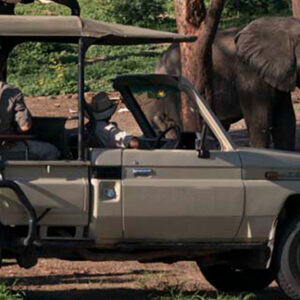
Chobe 3h Game Drive
$44.00Chobe game drives are the number one activity to experience while visiting Kasane and the Chobe National Park. The Park offers the chance to see any and / or all of the big game species including elephant, buffalo, leopard, lion, giraffe, kudu and hippo.
Select date(s) -
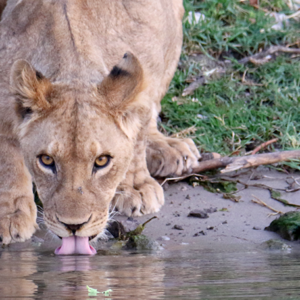
Chobe Breakfast Cruise
$100.00This is ideal chance to become acquainted with the immense beauty of the Chobe River and the exceptional game viewing opportunities.
Select date(s) -
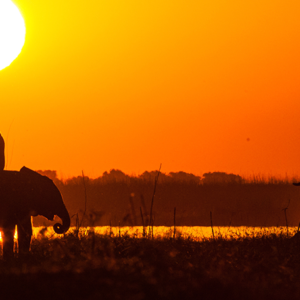
Chobe Sunset Boat Cruise
$60.00This is an extremely cost-effective way of enjoying what the Chobe River has to offer. It’s an ideal chance to become acquainted with the immense beauty of the Chobe flood plains (that are more like a lake when the annual floods come in April/May.) The game-viewing is exemplary, as is bird watching. You’ll cruise passed Sududu Island, source of a territorial dispute between Botswana and Namibia.
Select date(s) -
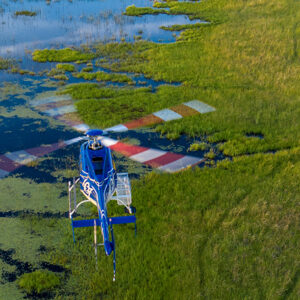
Discover the Delta – Helicopter
$245.00Experience the incredible variety of diverse ecosystems in one awesome adventure, taking you to the permanent waterways, palm islands and lagoons that constitute the heart of the south-western Okavango Delta
Select date(s)

